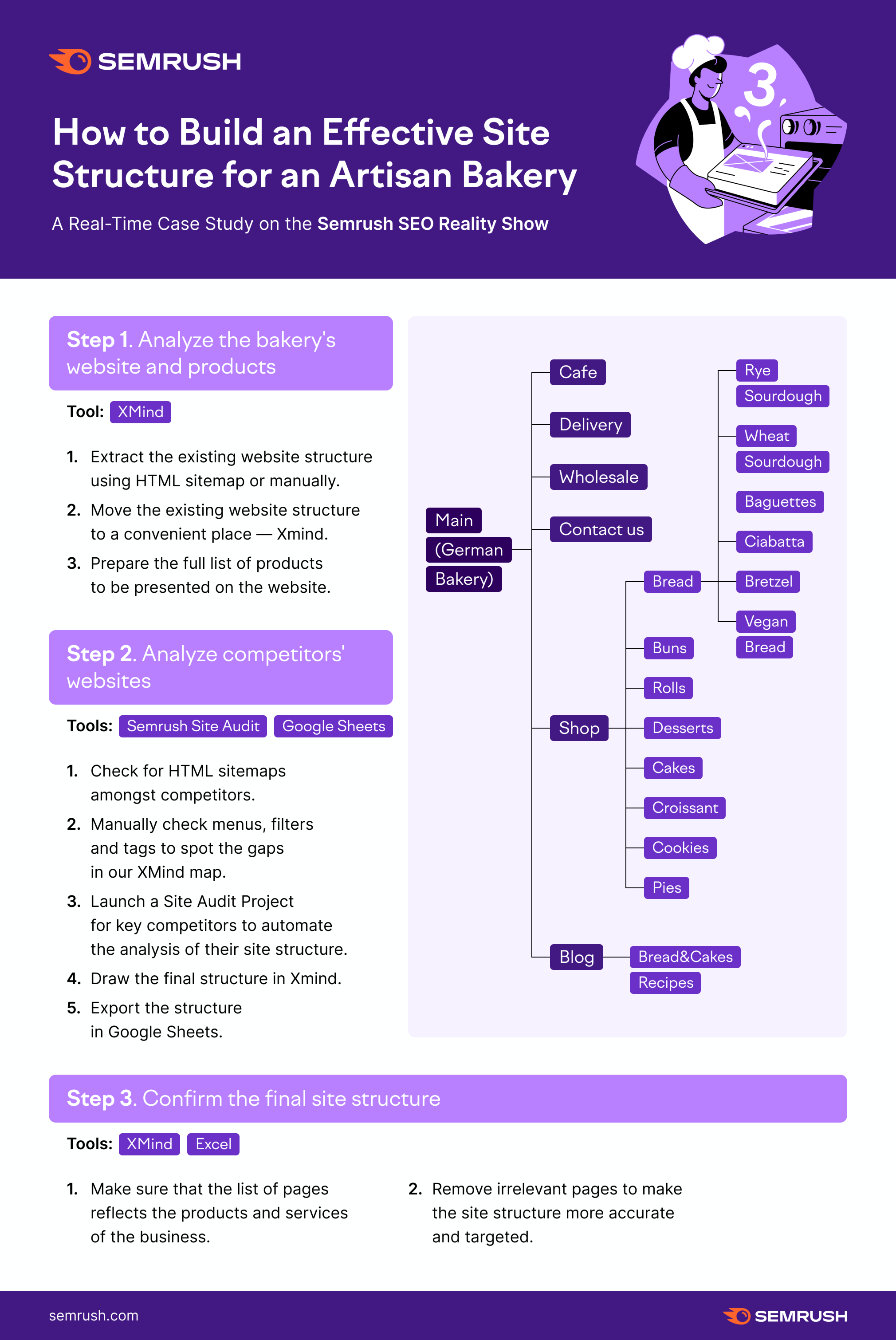In episode three of the SEO Reality Show series, we’re putting site structure under the spotlight for a Florida-based European bakery. Our expert agency is tasked with devising the best possible structure for the small business’ website to help it gain a competitive advantage and appeal to more customers.
In previous episodes, the agency selected six key competitors and prepared a list of websites for placing links. Once complete, it was a case of preparing the site structure for the client and determining the number of new landing pages needed to attract relevant traffic.
The main task at hand here was to optimize the site structure so that every potential entry point was covered. The larger and wider it could be, the more opportunities the bakery would have to appeal to relevant users. However, the challenge here was that the agency had to cut a number of suggested pages and sections to respond to the business’s expectations and strategy. Let’s walk through the process and see what we got at the end!
Getting Started
Three data sources were utilized to prepare this structure:
- The current structure of Edelweiss’ site;
- The list of products provided by the bakery; and
- The structure of competitors’ websites.
The structure of the site in question can be found in a number of ways:
- By checking the availability of an HTML sitemap and exploring the sections contained within it;
- By assessing the main navigational menu and/or tags or filters on the website itself; and
- By manually analyzing the sections of your client’s and their competitors’ sites (remember that the structure of a competitor’s site might not be immediately obvious on its surface).
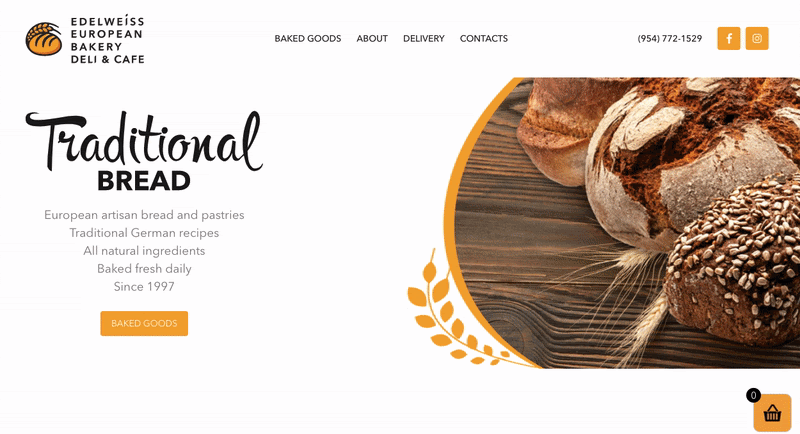
Let’s walk through the stages that were involved in creating the most suitable site structure for our client:
Step 1 — Analysis of the client's website and products
Firstly, it was necessary to move the existing structure of the client's site to a convenient place for subsequent editing. It is important to note here that the agency was transferring sections and not products. For the convenience and simplicity of visualizing information in this instance, the free program XMind was used.
The site only had one landing page, which would have been a suitable approach for an individual case in which a single landing page was required for one specific product. In our case, however, this simply wasn’t going to work because the number of goods and services provided by Edelweiss was much larger:
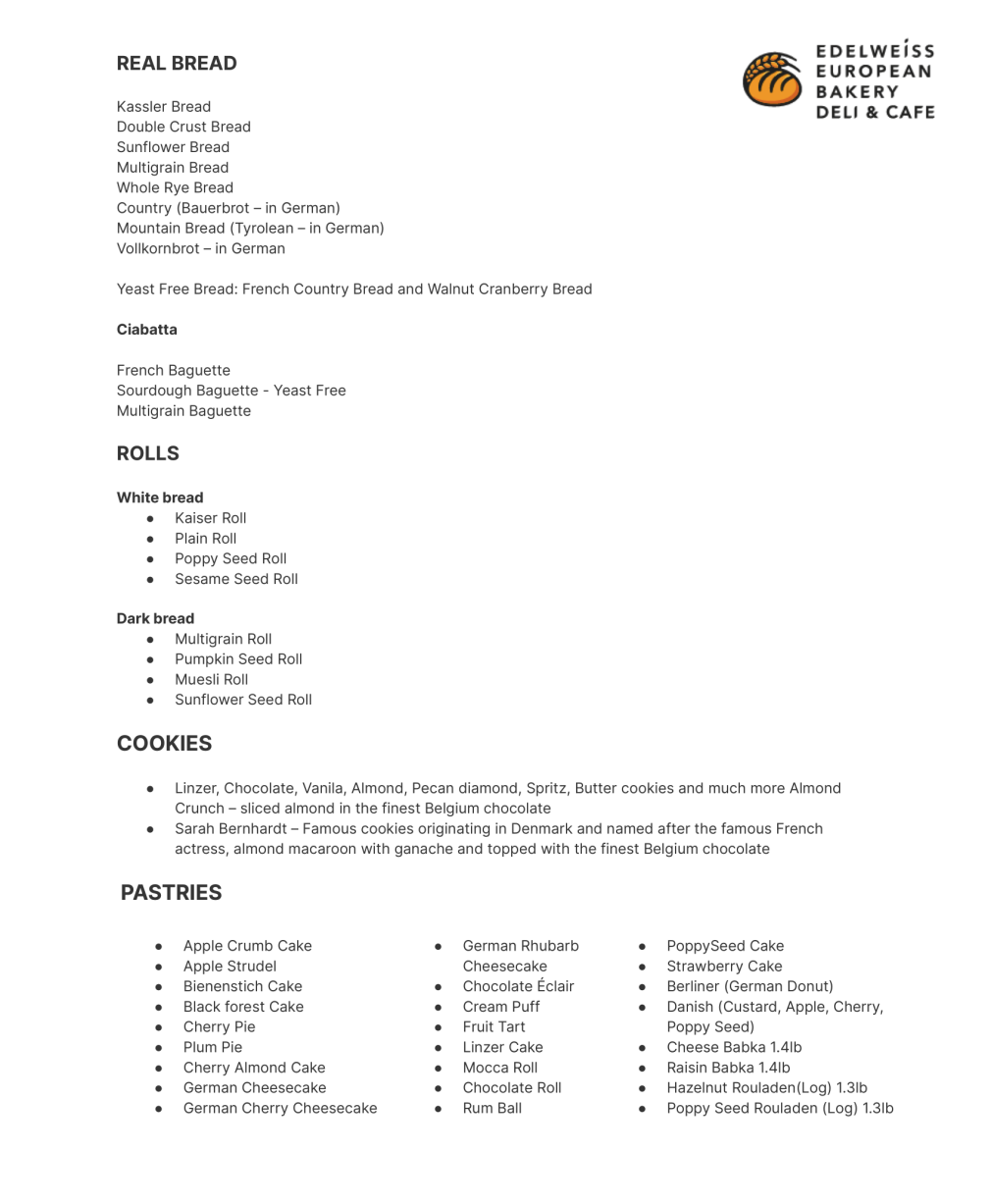
With nothing to transfer but the main landing page, the agency needed to rely on the list of products and services provided by the client (above) to inform the sections to add to the XMind map. The process of creating the structure of the site via XMind can be seen in the screencast below:
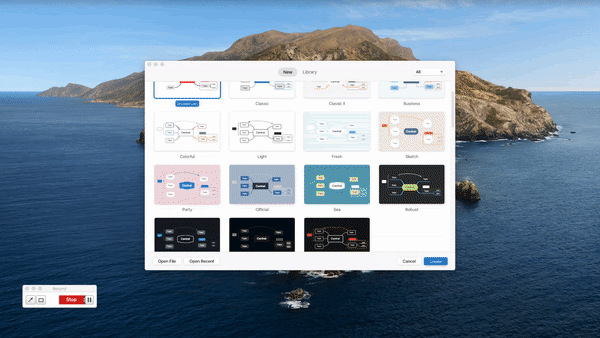
Step 2 — Analysis of competitors' websites
Next up, it was time to check for HTML sitemaps amongst competitors and manually check menus, filters, and tags to spot the gaps in our XMind map, which helped bolster the potential structure of the client’s site and make it as comprehensive as possible.
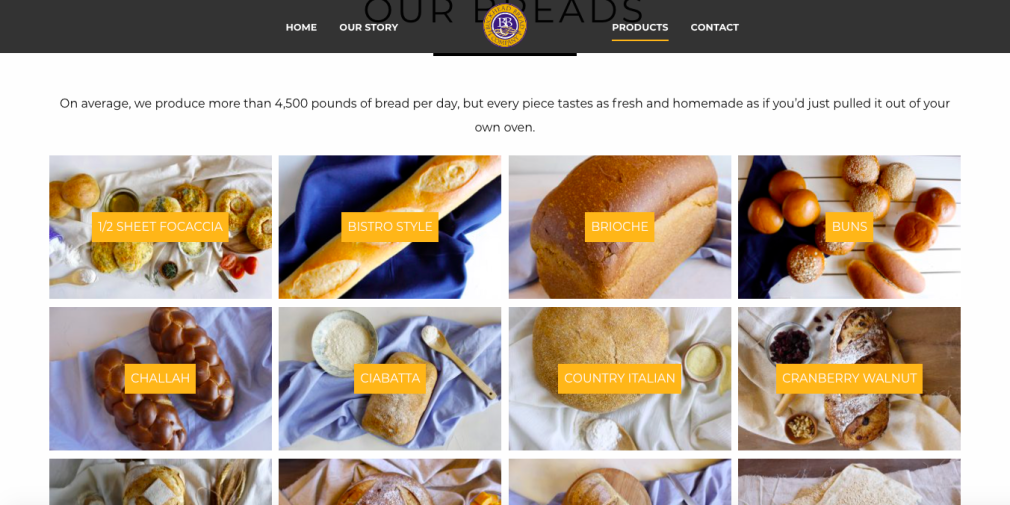
An example of a well-developed structure on the competitor's site buckheadbreadwholesale.com: a separate section has been created for each type of product, following the logic of site navigation.
Tooltip: You can automate the analysis of site structure by adding the project to Semrush’s Site Audit tool (more about this in one of the following episodes). Go to the Crawled pages → Site structure section to find your results.
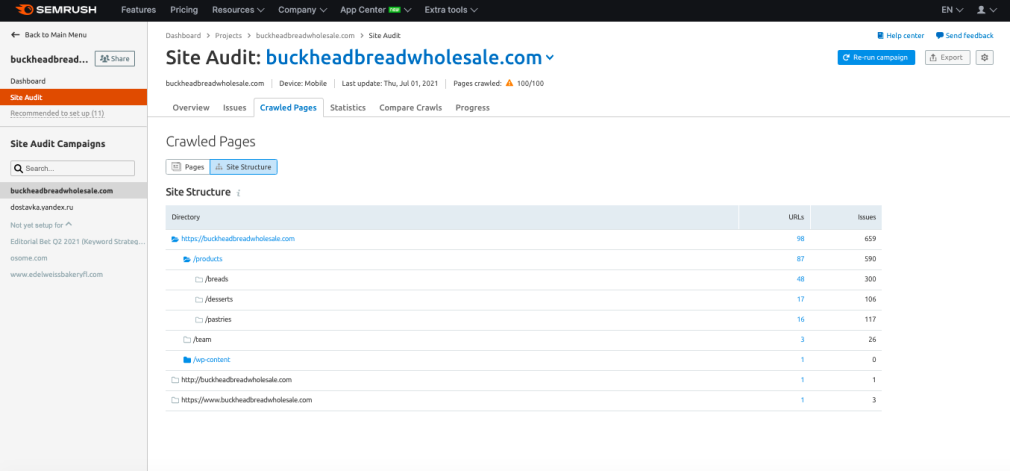
Once the structure was drawn in XMind, it was transferred to Google Sheets (to do this, the agency went to the Outliner tab and copy the content for pasting), and then sent to the client for approval.
Step 3 — Confirm the final site structure with the client
This stage involved analyzing the best site structure possible by whittling it down to the precise list of pages that reflected the products and services of the business in question. If there were pages or sections that weren’t relevant, they were removed to make the site structure more accurate and targeted.
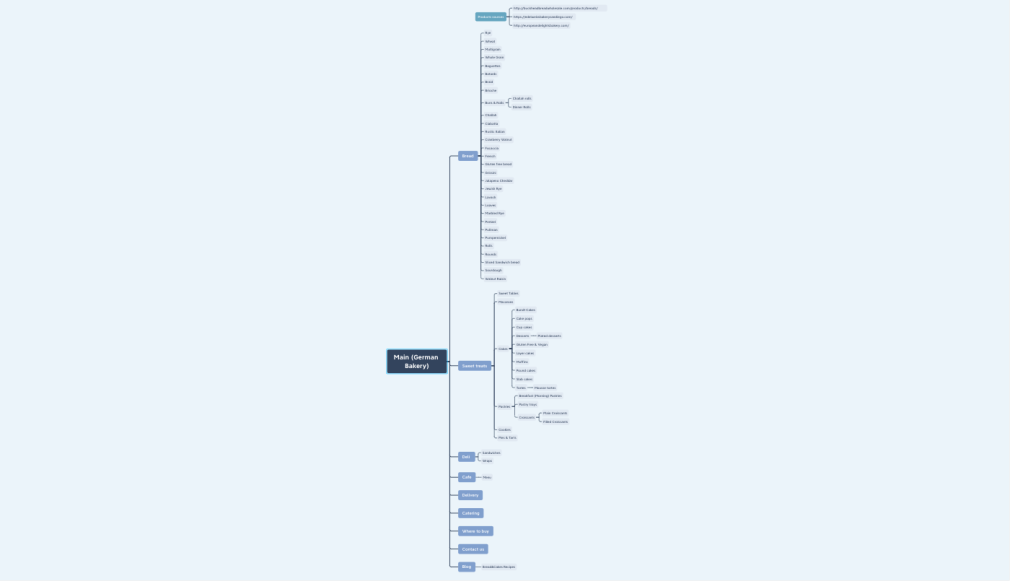
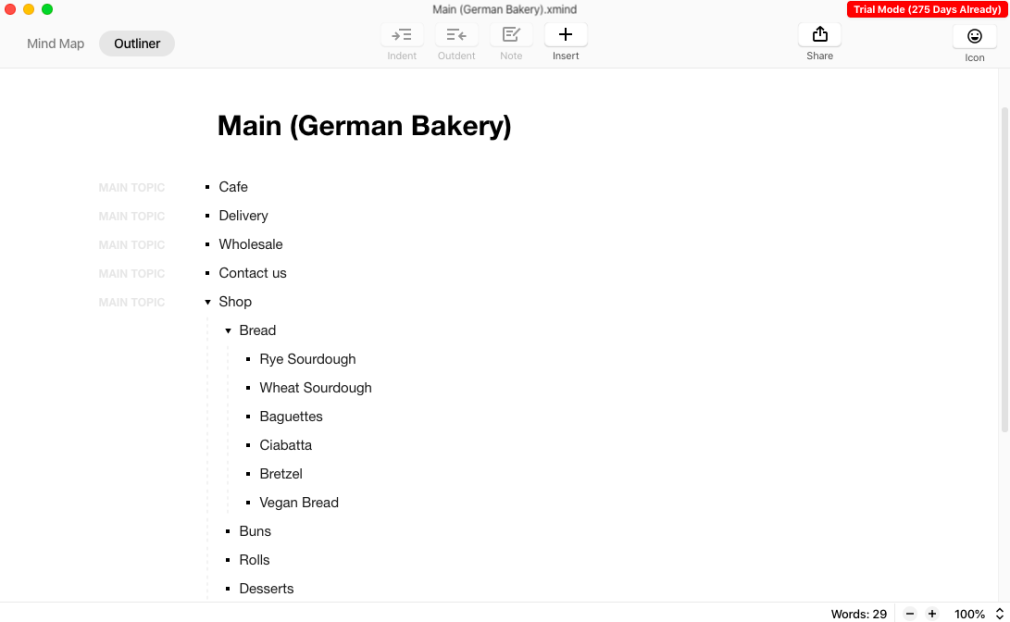

The routes in the suggested list aren’t always entirely suited to the business, so it was natural at this stage to work collaboratively towards a shorter, more refined list, as you can see in the screenshot below:
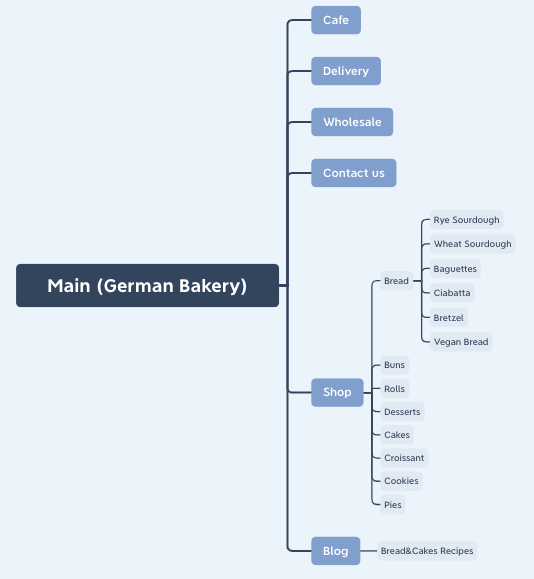
[Get Your Website Structure Template]
The next stage takes us onto the preparation and development of the semantic core for the optimal site structure. Stay tuned for the next update in our SEO Reality Show series and recap on episode one and episode two!
Infographic: Building an Effective Site Structure in 3 Steps
